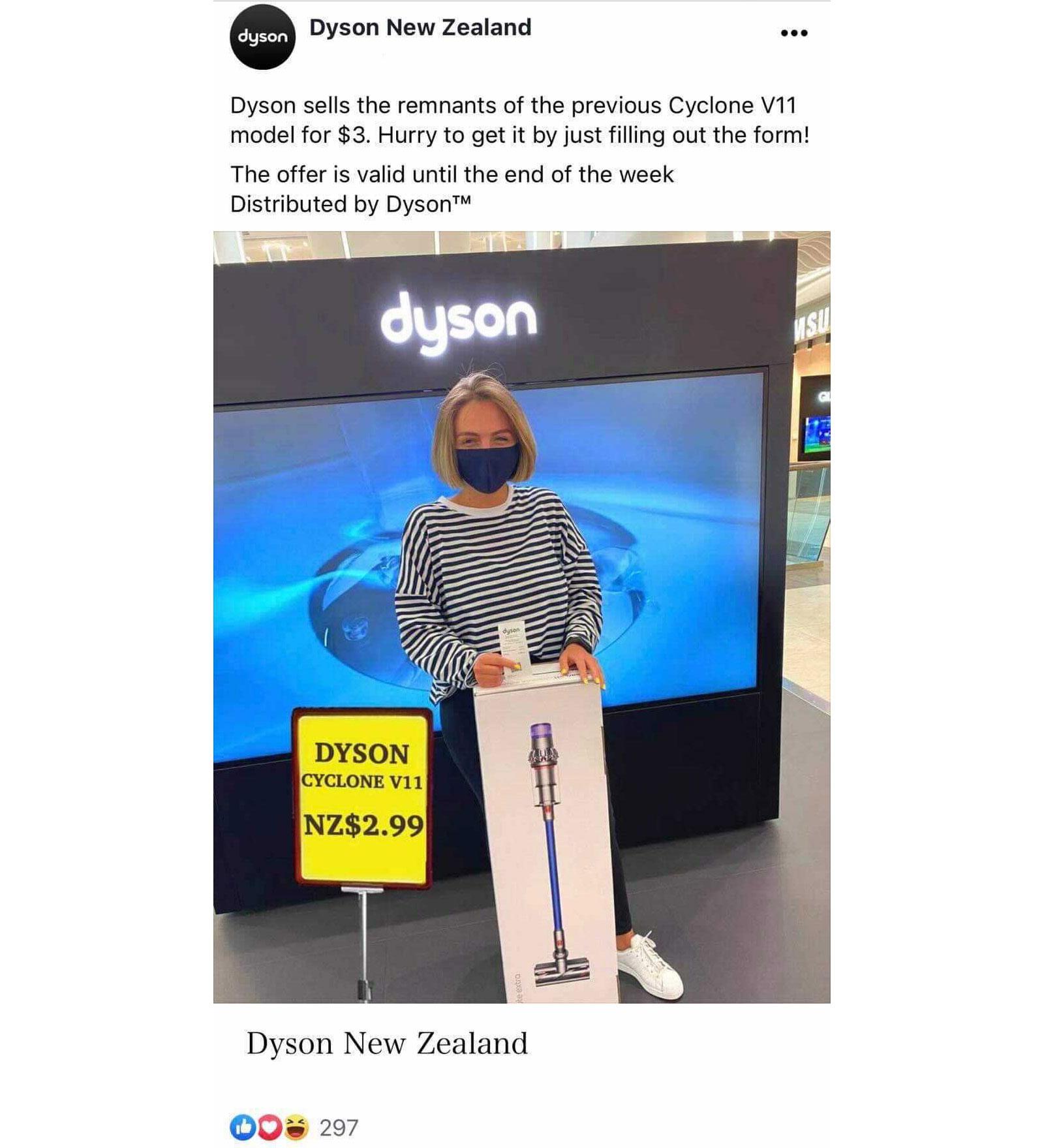
Kiwis are being told to remain vigilant as online scams continue to circulate offering consumer electronics for bargain prices as well as non-existent gift cards for answering questions.
Newshub saw one such example last week when Dyson Cyclone V11 vacuum cleaners were offered for a price of just $3 each. Every model in the V11 range currently starts at more than $1000 each, according to pricespy.co.nz.
The Facebook page making the offer was entitled "Dyson New Zealand", used the Dyson logo as its profile picture and claimed to be "Distributed by Dyson™" - but this wasn't true.
"We have been working with Facebook to have these pages taken down," Dyson told Newshub in a statement.
"At Dyson we take security and our owners' data extremely seriously. We are investigating these fraudulent Facebook pages and offers and are implementing various measures to mitigate this happening in the future."

Meanwhile, Pak'n Save customers have been told there are multiple scams claiming they can win a $500 gift card by completing a survey.
"This is not true and are not associated with Pak'n Save," the company said on its website.
Kiwis have lost millions of dollars through scams so far this year with CERT NZ, the Government's cybersecurity agency, reporting losses of around $3 million in the first quarter of the year alone.
Netsafe, an independent, non-profit online safety organisation puts the figure closer to $5 million, with the average loss around $6500.
Nadia Yousef, Incident Response Manager at CERT NZ, told Newshub that scams use a variety of different premises and often change to match current events, but how they work remains the same.
"If a deal, opportunity or investment seems too good to be true, it probably is," she said.
"Online shopping scams are commonly reported to CERT NZ. This includes scams with knock off items (like fake Gucci wallets), items never showing up, or items advertised much cheaper than retail value - particularly popular electronics such as smartphones.
"The purpose of these scams is to convince you to transfer money, or provide your credit card or banking credentials."
Facebook insists it is acting to remove such scams from its platform.
"The issue of scams and fraud is not unique to Facebook," a company spokesperson for the social media giants told Newshub.
"It has plagued the internet for years. We work to get ahead of scammers and that includes making investments in our enforcement, take legal action against fraudsters and provide tools for people to spot and report suspicious behaviour."
The fake Dyson Facebook page is now unavailable to access. That particular scam may have been more convincing to some people as many of the comments included photos of people with V11 vacuums they claimed to have bought via the deal.
Dyson pointed out to Newshub that the fake "Dyson New Zealand" Facebook page did not have a verified badge (blue tick), and hence should not have been trusted.
It's not known how many New Zealanders fell victim to the scam.
Common things to look for in scams, according to CERT:
- Goods being sold much cheaper than retail, especially if new
- The company or seller has a short or no prior sales history on the platform
- The listing uses the name of an established company or celebrity but the page or account is recently created or unverified by the platform
If you think you've been scammed, CERT NZ advises you to contact your bank immediately and report the incident to CERT NZ via their online reporting tool.




